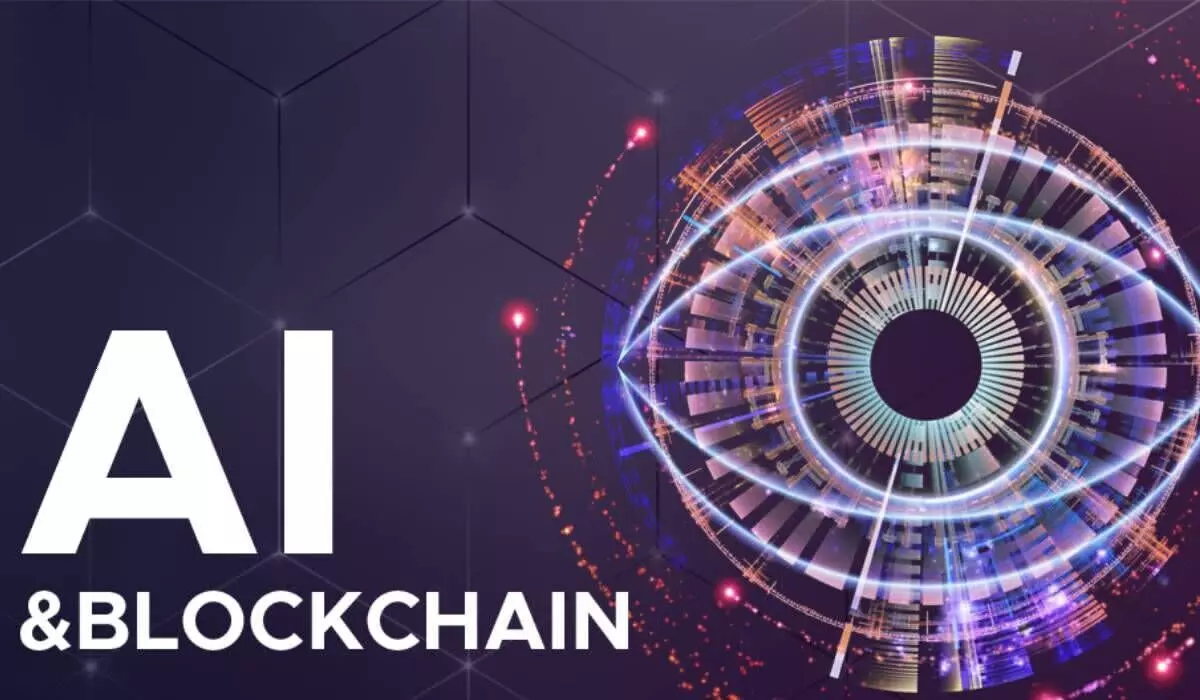AI in Crypto and Blockchain: Exploring Use Cases and Possibilities
Artificial intelligence (AI) has garnered significant attention in recent months, even though its development has been underway for decades. As AI continues to evolve, it has found its way into the world of cryptocurrencies and blockchain. Exchanges such as Binance, utilize AI-driven solutions that can identify and respond to potential threats, such as peer-to-peer (P2P) scams, theft of payment details, and account takeover attacks (ATO), just to name a few.
image for illustrative purpose

Mumbai, May 30 Artificial intelligence (AI) has garnered significant attention in recent months, even though its development has been underway for decades. As AI continues to evolve, it has found its way into the world of cryptocurrencies and blockchain. Exchanges such as Binance, utilize AI-driven solutions that can identify and respond to potential threats, such as peer-to-peer (P2P) scams, theft of payment details, and account takeover attacks (ATO), just to name a few.
The intersection of AI and crypto has the potential to unlock a whole new world of possibilities, and has presented a range of exciting use cases. By examining the use of AI in various sectors, such as DeFi, NFTs, and DAOs, more insights can be gained into the potential future applications of this transformative technology.
AI in DeFi:
Decentralized Finance (DeFi) has experienced remarkable growth across the years, and AI is playing a pivotal role in further enhancing its capabilities. One significant area where AI is making an impact is in the smart contract audit process. Smart contract audits involve a comprehensive inspection and analysis of smart contract codes to identify security or technical issues that may result in potential vulnerabilities in the system. Utilizing AI to augment the process can allow developers to identify potential vulnerabilities and security risks, ensuring safer and more reliable smart contracts.Furthermore, integrating AI into DeFi applications (dApps) can facilitate trade automation in DeFi platforms. Machine learning models can analyze vast amounts of data, which enables the automation of trading strategies based on predefined rules. This not only saves time but also enhances efficiency in the execution of trades.
When coupled with predictive analytics, AI can also become an enabler of more accurate forecasts in the DeFi space. By analyzing historical data and market trends to identify risk patterns, AI algorithms can provide valuable insights for decision-making, risk management, and optimizing investment strategies.
AI in the NFT Space:
The entry of Non-Fungible Tokens (NFTs) have revolutionized the digital art and collectibles industry. Several NFT projects have utilized AI to create generative art, which refers to art created through the use of an autonomous system. Through AI-powered generative art algorithms, AI is contributing to this transformative movement by enabling the creation of unique and dynamic artworks. These algorithms can produce an infinite number of variations, fostering creativity and innovation in the NFT space.
Additionally, AI allows for the development of intelligent and interactive NFTs, otherwise known as intelligent NFT (iNFT). iNFTs integrate both AI and NFT technology to offer interactive tokens with intelligent traits and reasoning abilities. This allows for the shaping of responses to user input or external stimuli, which creates an immersive and engaging experience for collectors.
AI in DAOs:
Decentralized Autonomous Organizations (DAOs) are self-governing entities, run by token holders who engage in the management of the entity by collectively casting votes. Running a DAO can be operationally challenging due to the involvement of numerous tedious tasks. AI integration can further enhance their operations by improving manual DAO operations, automating repetitive tasks and streamlining decision-making processes.
Moreover, the concept of autonomous agents acting as delegates for token holders is being explored. Theoretically, the democratic nature of DAOs has several value propositions, however, the act of requiring every member to vote on every single proposal can often be overwhelming and impractical. These AI-powered agents can act as representatives for token holders in the voting and governance processes, which ensures greater participation and efficiency.
The Future Possibilities:
Evidently, the intersection of AI and crypto presents a vast array of possibilities for the future. These possibilities include AI-driven risk management systems, fraud detection mechanisms, enhanced privacy solutions, and intelligent market prediction models.
Moreover, AI-powered decentralized exchanges could revolutionize the trading landscape by providing superior liquidity and optimizing trade execution. However, it is crucial to acknowledge that challenges remain. Ethical considerations, data privacy, and the need for robust regulatory frameworks are some essential factors that must be addressed for the responsible and widespread adoption of AI in crypto.
Nonetheless, the continued advancement of AI technology and crypto may usher in interesting use cases which can be helpful for different stakeholders in the ecosystem.

